Medal Rescuers; Beware the Method
Topic: Medals
 On a popular medal collecting forum, there are occasional discussions about "medal rescuers," those who identify medals available on the market and take steps to see them returned to what they believe are fitting recipients, ideally family or, if no family can be found, an appropriate museum or special interest group. The underlying context, of course, is that medals are being "rescued" from those " scum-of-the-earth" collectors and dealers. In the discussions found on line, two types of medal rescuers are referred to, usually with a specific individual in mind for each type as they appear in the news. Both types of medal rescuers rely on media (newspapers, television news, etc.) to help them seek the eventual receivers, but it is also here that they diverge completely in style and results.
On a popular medal collecting forum, there are occasional discussions about "medal rescuers," those who identify medals available on the market and take steps to see them returned to what they believe are fitting recipients, ideally family or, if no family can be found, an appropriate museum or special interest group. The underlying context, of course, is that medals are being "rescued" from those " scum-of-the-earth" collectors and dealers. In the discussions found on line, two types of medal rescuers are referred to, usually with a specific individual in mind for each type as they appear in the news. Both types of medal rescuers rely on media (newspapers, television news, etc.) to help them seek the eventual receivers, but it is also here that they diverge completely in style and results.
One type of medal rescuer acquires medals with their own funds, seeking to do so at fair market value, or even below that with the agreement of the seller that finding the family, if anyone remains, is their intent. Only after acquiring the medal is the search for family publicized. In this way the medals can be transferred to the family at that same cost, or as a gracious donation to an appropriate museum or charitable cultural organization. These rescuers risk their own funds and, when a search is unsuccessful, accept that they are the newest custodian of that soldier's medals and memory. These rescuers buy medals and, only after acquiring them, do they seek a family or appropriate resting place for them. They choose the pace and direction of the search, and the final destination is under their control. Kevin McCormick, the Honourary Lieutenant Colonel of the Irish Regiment of Canada, does this.
The second type of rescuer uses a very different tactic. They identify the medals being sold, establish a connection to a locality for a targeted media campaign, and then, with the help of cooperative reporters, push the story to the public. These stories always include the need for haste, in order to close an auction that may be running for only seven days. These restrictive timelines place pressure on families, if found, or museums or special interest groups to react quickly, often compounded by added public pressure that something be done. Without time to research either the recipient or the market value of the offered medals to determine if money will be responsibly spent, families of groups may be pushed into making poor decisions and bidding wars. But none of that matters to the medal rescuer, each deal closed on behalf of a family or group that has promised to pay, no matter what the final bid might be, is a victory, no matter how Pyrrhic in hindsight. After all, the rescuer is bidding to win, but not with his own money. Dave Thomson does this.
In one very notable case, a single medal to a Canadian soldier was purchased by a charitable organization through a medal rescuer for a grossly inflated price. That medal had a market value of $100 to $200, the lower price point already recognizing the collectability of the soldier's unit, the second assuming two or more collectors were vying for it. As a result of media attention, the direct or indirect alerting of competing cultural institution or individuals all seeking to "save" the medal from collectors, the final sale price was over $7400 dollars.
So who takes the blame. In the minds of those who felt that this was truly a "rescue," it is the seller that must be evil for making such profit. But the seller only listed the medal, with an appropriate low starting bid. After that, he did nothing but watch the climbing bids in an open market on-line auction. The seller did not contact the media. The seller did not contact special interest groups or charitable causes. The seller did not create an air of urgency that obliterated common sense and pause for research. Once attention was focused and bidding reached outrageous proportions, the seller could do nothing, even stopping the auction would have resulting in criticism, perhaps implying that he had sold the medal off-line to a private bidder, thus hazarding his reputation as a seller in that on-line marketplace. The seller's hands were tied by the process that overtook his sale.
So, who ran that process? The medal rescuer initiated it. The media fostered it as a cause, one with an urgent need to be met by well-meaning citizens. And the citizens, either individually or through charitable organizations, responded. Well-meaning perhaps, but surely as thoroughly misled by that pace and process.
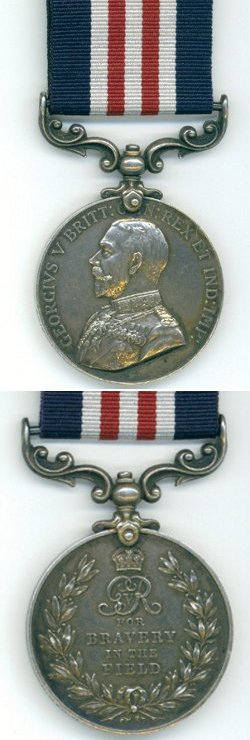 There were hundreds of medals to Canadians on ebay that month. Why that particular medal. The soldier's unit is one that evokes sentimental feelings, a book has been written about them, and doing good for a worthy cause never falls short of gaining support. The rescuer and the media milked that angle for all it was worth and let momentum take its course. As soon as the media spotlight turns on a particular auction, there's no guessing where it will go. Other medals to soldiers of that unit have sold since at market values without the media attention. Perhaps it was a well-intentioned plan, but the way it was executed in the public eye, with emotional media support derailed any good intentions in the result. Yet somehow we always seem to see the "rescuer" lauded, even when a charitable organization has to raise $7400 for a $200 medal.
There were hundreds of medals to Canadians on ebay that month. Why that particular medal. The soldier's unit is one that evokes sentimental feelings, a book has been written about them, and doing good for a worthy cause never falls short of gaining support. The rescuer and the media milked that angle for all it was worth and let momentum take its course. As soon as the media spotlight turns on a particular auction, there's no guessing where it will go. Other medals to soldiers of that unit have sold since at market values without the media attention. Perhaps it was a well-intentioned plan, but the way it was executed in the public eye, with emotional media support derailed any good intentions in the result. Yet somehow we always seem to see the "rescuer" lauded, even when a charitable organization has to raise $7400 for a $200 medal.
The following, quoted on the British Medal Forum, was part of the Wikipedia article on No. 2 Construction Battalion, it has since been edited to a much less detailed sentence.
"In February 2007, the First World War Victory Medal to 931309 Sapper PR. P.F. of the 2nd Construction Battalion was put up for auction on eBay. This auction caught the attention offenton self-proclaimed medal "rescuer" Dave Thompson of St. George, Ontario. Having brought the attention of the media and special interest groups upon this auction, the medal, which should realistically have sold in the $100-200 (Cdn) range, ended up closing at a price of over $7,400 (Cdn).
"This price was not, however, paid by Mr. Thompson (sic) who placed the winning bid, but was left to the Black Cultural Centre in Dartmouth, Nova Scotia, to raise donations in order to cover this extremely high medal price. Without the attention his effort brought to this auction, the Black Cultural Centre should have been able to purchase the medal for a small fraction of the cost he made them responsible to raise."
There's certainly nothing wrong with wanting to see medals returning to families who have gained a renewed understanding of their importance, or to appropriate museums and cultural organizations. As they say say, the devil is in the details, and here it is in the technique. Not everyone agrees with the medal rescuer's method described above.
What are the alternatives?, you may ask.
One possibility is to take a more altruistic approach, as shown above.
Another alternative for the medal rescuer who doesn't wish to spend their own money is keeping a low profile. Discover a medal (that part is as easy as searching ebay for Canadian medal). Identify a likely recipient community, museum, cultural organization of family. Choose a limited number of contacts, so as to not initiate a bidding war between them, and with complete openness including letting them know who else you are speaking to, inform them of the opportunity. Then let them decide their next action, and let them bid if they want to, up to the limit they feel they can responsibly afford.
This approach avoids bidding wars fomented by media attention. It also means those responsible for the money are doing their own bidding, instead of making promises to pay whatever it takes to win, with a "rescuer" bidding solely to have the top bid. But, perhaps the downside for the "medal rescuer" is that they don't get interviewed for the paper. They don't get lauded as a "rescuer" as the hand an overpriced medal to the proud recipient that must now pay for it. In particular, when that recipient is a charitable organization that has been pressured into the transaction by media attention and public cries for action, how else might they have spent that money in accordance with the priories they had already set. What deeper costs might have been paid to sustain the medal rescuer's ego?
If you want to join a "medal rescue" event, please do so with open eyes and an awareness of how it's being conducted. The actual outcomes may not be as praiseworthy as the media campaign might imply.

Posted by regimentalrogue
at 12:01 AM EDT
Updated: Tuesday, 10 April 2018 6:16 PM EDT
 Library and Archives Canada holds multiple records and files for the First World War (1914–1918), mostly for the Canadian Expeditionary Force (CEF). It is necessary to consider all of these records together in order to fully understand the Canadian contribution to this war. The Guide to Sources Relating to Units of the Canadian Expeditionary Force is a unique finding aid that brings together references to records and files scattered throughout several fonds, which relate to almost every unit in the CEF.
Library and Archives Canada holds multiple records and files for the First World War (1914–1918), mostly for the Canadian Expeditionary Force (CEF). It is necessary to consider all of these records together in order to fully understand the Canadian contribution to this war. The Guide to Sources Relating to Units of the Canadian Expeditionary Force is a unique finding aid that brings together references to records and files scattered throughout several fonds, which relate to almost every unit in the CEF.
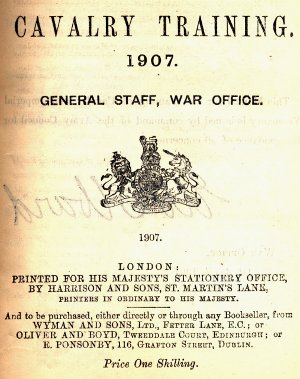 S. 203. — Practical Instruction in the use of the Lance (Mounted).
S. 203. — Practical Instruction in the use of the Lance (Mounted).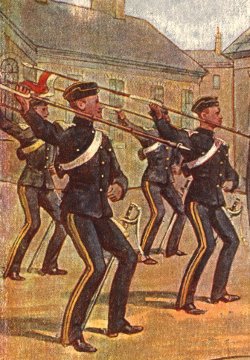 For the latter purpose, the "thrust" may be practiced to the left and right fronts as follows:—
For the latter purpose, the "thrust" may be practiced to the left and right fronts as follows:—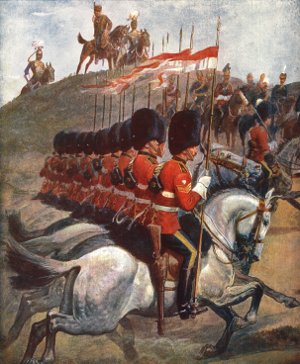 In the early exercises, one dummy for each run will suffice; at subsequent lessons two should be used, which should be in the same line, and on the same hand.
In the early exercises, one dummy for each run will suffice; at subsequent lessons two should be used, which should be in the same line, and on the same hand.



 So much has happened in the past six months that it would be impossible to attempt to tell all.
So much has happened in the past six months that it would be impossible to attempt to tell all.
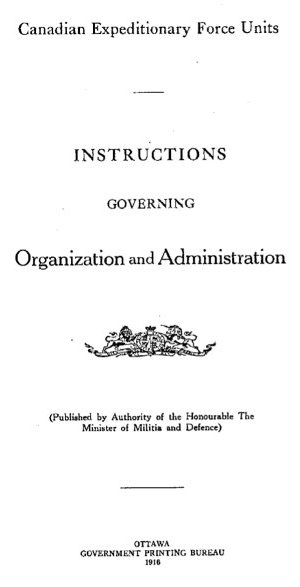

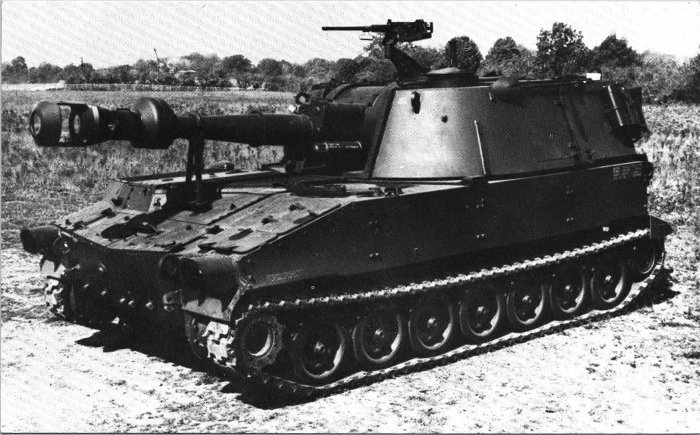
 On a popular
On a popular  There were hundreds of medals to Canadians on ebay that month. Why that particular medal. The soldier's unit is one that evokes sentimental feelings, a book has been written about them, and doing good for a worthy cause never falls short of gaining support. The rescuer and the media milked that angle for all it was worth and let momentum take its course. As soon as the media spotlight turns on a particular auction, there's no guessing where it will go. Other medals to soldiers of that unit have sold since at market values without the media attention. Perhaps it was a well-intentioned plan, but the way it was executed in the public eye, with emotional media support derailed any good intentions in the result. Yet somehow we always seem to see the "rescuer" lauded, even when a charitable organization has to raise
There were hundreds of medals to Canadians on ebay that month. Why that particular medal. The soldier's unit is one that evokes sentimental feelings, a book has been written about them, and doing good for a worthy cause never falls short of gaining support. The rescuer and the media milked that angle for all it was worth and let momentum take its course. As soon as the media spotlight turns on a particular auction, there's no guessing where it will go. Other medals to soldiers of that unit have sold since at market values without the media attention. Perhaps it was a well-intentioned plan, but the way it was executed in the public eye, with emotional media support derailed any good intentions in the result. Yet somehow we always seem to see the "rescuer" lauded, even when a charitable organization has to raise 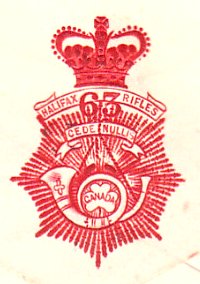 H. Hechler, Captain
H. Hechler, Captain
 Free admission, family friendly, celebration of this great nation and its people.
Free admission, family friendly, celebration of this great nation and its people.
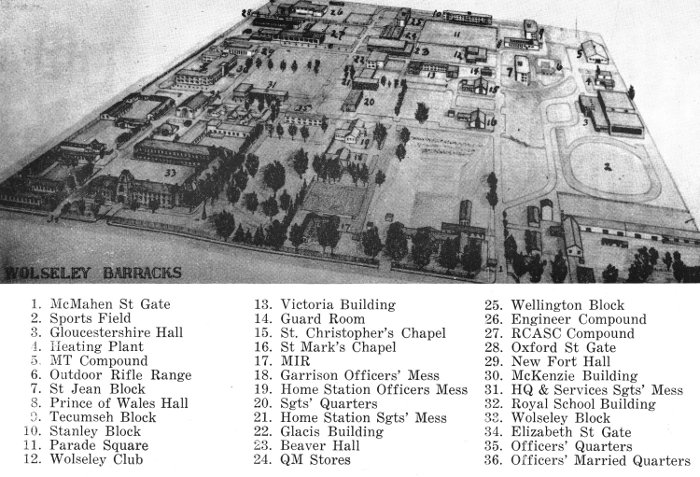

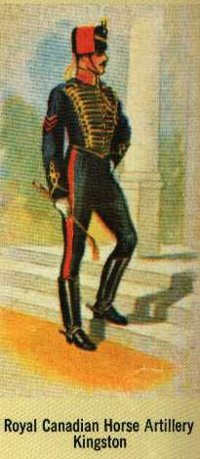


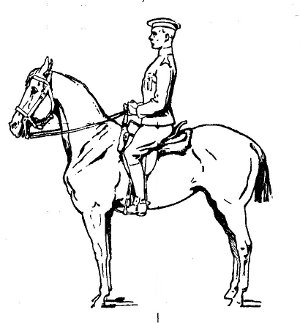 S.7. – Training of the Men
S.7. – Training of the Men
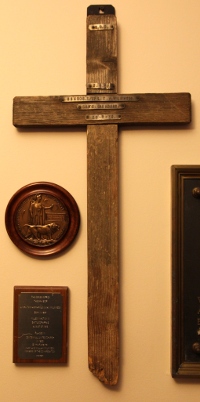
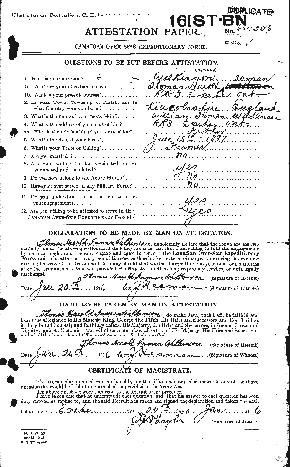
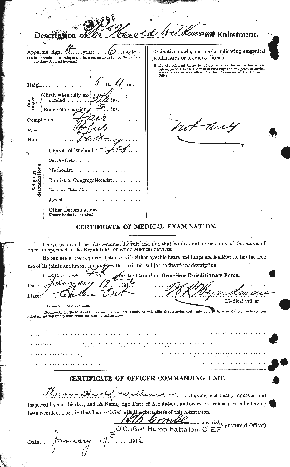
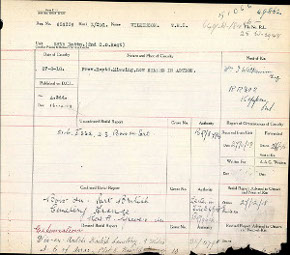
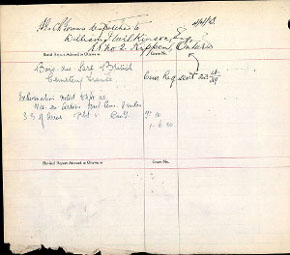
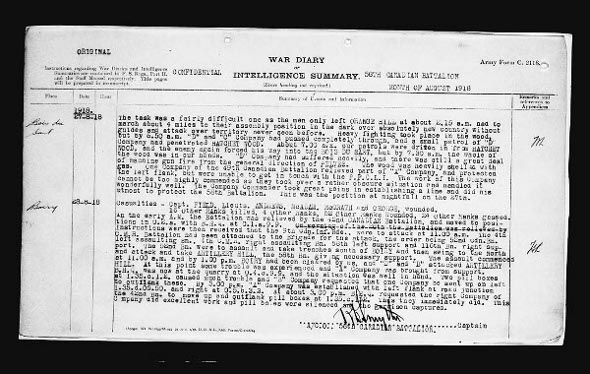
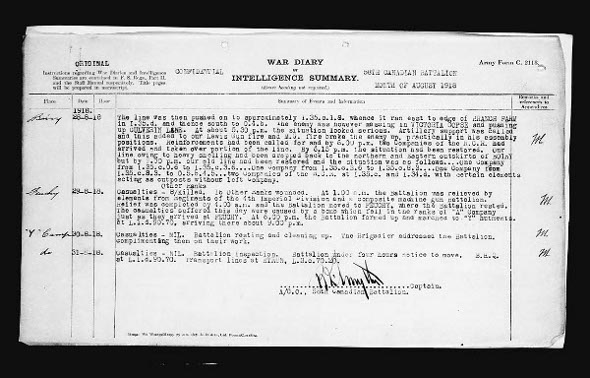

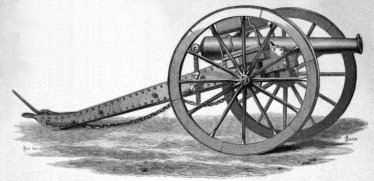 To be competed for on parade during annual drill by the four sub-divisions of the Battery. the prizes to be awarded to the Batteries performing the conditions in the shoertest average time.
To be competed for on parade during annual drill by the four sub-divisions of the Battery. the prizes to be awarded to the Batteries performing the conditions in the shoertest average time. 
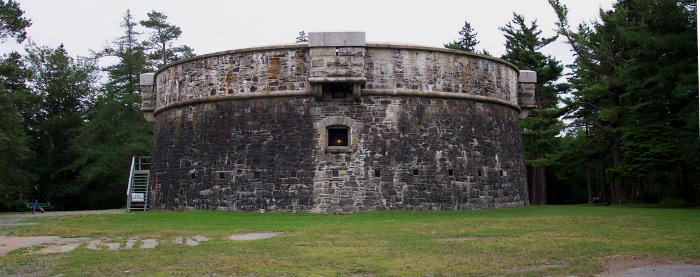
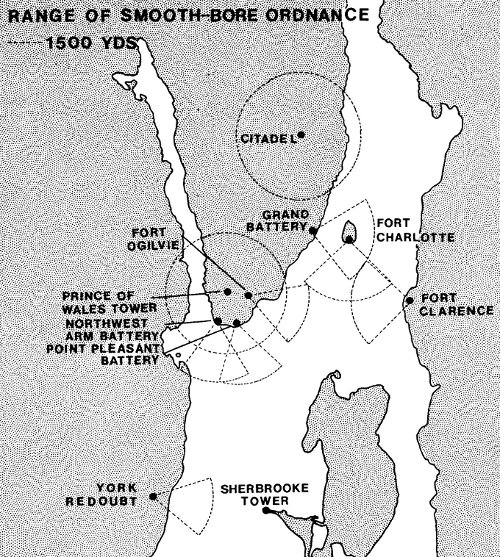 The likeliness of congestion in the main harbour from burning ships and damaged docksides, the steep approach through the town and being under the guns of the fortress make that approach an undesirable on for an attacker. The alternatives, therefore, would be landing on
The likeliness of congestion in the main harbour from burning ships and damaged docksides, the steep approach through the town and being under the guns of the fortress make that approach an undesirable on for an attacker. The alternatives, therefore, would be landing on 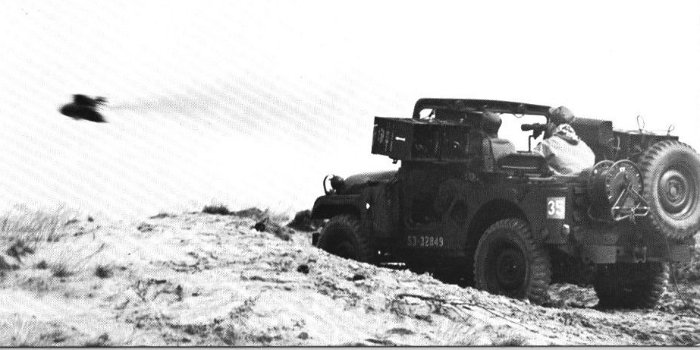
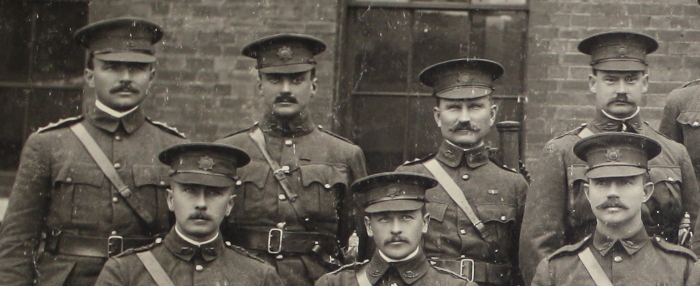
 Military Customs
Military Customs The Royal Fusiliers (City of London Regiment)
The Royal Fusiliers (City of London Regiment) Excerpts from the pages of On the Psychology of Military Incompetence, by Norman F. Dixon (1976).
Excerpts from the pages of On the Psychology of Military Incompetence, by Norman F. Dixon (1976).